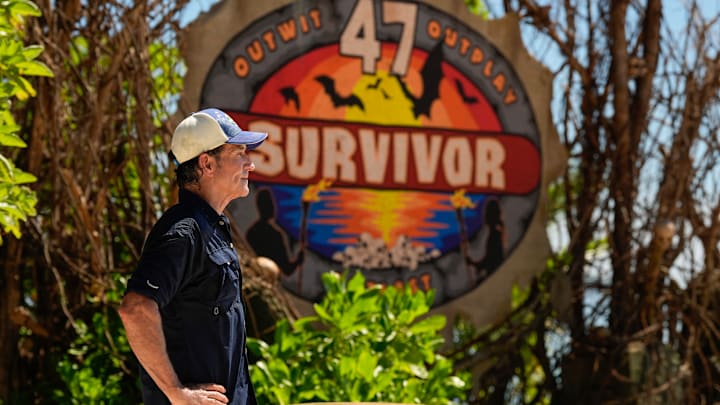Do you feel like every vote on Survivor feels like a major blindside lately? Well, that's by design, according to Jeff Probst.
While discussing Survivor 47 episode 4, "Is That Blood in Your Hair," on the On Fire with Jeff Probst podcast, cohost Charlie Davis shared why he feels that every vote on new era Survivor has to be a blindside.
"One of the biggest changes or, I'll say as a player, challenges in new era Survivor is that every single vote has to, or should be at least, a blindside," Charlie said. "And, Jeff, I'm going to steal your production talk here, why? It's the Shot in the Dark."
Probst agreed with Charlie's point that every vote needs to have an element of surprise for the player who is the mark.
"Well, that's exactly why the Shot in the Dark is in the game," Probst said. "That's exactly why it's there, to make it much more difficult to vote someone out by telling them, because, well then, I'll just play my Shot in the Dark, and maybe it's you. So, now, you can't tell them, and blindsides are a must."
That point should be quite obvious to those watching Survivor. Before the Shot in the Dark was introduced, it wasn't exactly fun to watch people on the bottom flounder or simply be told by the majority alliance they were going home. It means that the majority alliance still needs to make the person on the bottom or whoever the mark is feel at least a little bit like they have a chance.
The Shot in the Dark still isn't great odds, and you can only use it one time. So, it seems like that people on the bottom take a chance trusting someone rather than rolling the dice and potentially losing their vote.
It's not the perfect answer to the problem because players rarely use the Shot in the Dark, but there is infinitely more drama every time a tribe goes to tribal council because one player might take a 20-25% chance (at best) to stay in the game.
"That's exactly what goes through a player's head," Charlie replied to Probst. "And, structuring a blindside is very tricky because you have to give the real target a fake target, but the fake target can very quickly become the real target who actually goes home if an idol is played, one or two people switch their votes."
Charlie is obviously referring to what happened with Kishan Patel, Genevieve Mushaluk, and Rome Cooney in episode 4. Kishan and Rome made a plan to tell Sol Yi that Genevieve was the fake target to try to get Sol to trade his Shot in the Dark. Rome basically threatened Sol, which rubbed him the wrong way.
Later, though, and this is where things get fuzzy. Genevieve learned that Kishan, her ally, tossed her name out there, and then she planned to change the vote at the last second to Kishan. Rome played his Steal a Vote advantage on Kishan, and Kishan was the fourth person voted out of Survivor 47.
Kishan told Entertainment Weekly that Genevieve was fine being the fake target, so he thought she was going to make a move anyway in approaching Rome about the blindside.
It's a very interesting conundrum because no one wants to be the fake target. Kishan and Teeny even mentioned that in the episode. The thing is, though, if you're not hearing your name tossed out as a fake target, you might be the real target, and that's what happened to Kishan.
The Shot in the Dark does add a layer of uncertainty to every tribal council. From a viewer's perspective, it might not seem to matter, but when a person can suddenly be safe from the vote, it has to be nerve-wracking heading into tribal council.
Well, it looks like the Shot in the Dark is here to stay. Now, I just want to see someone use it correctly.
